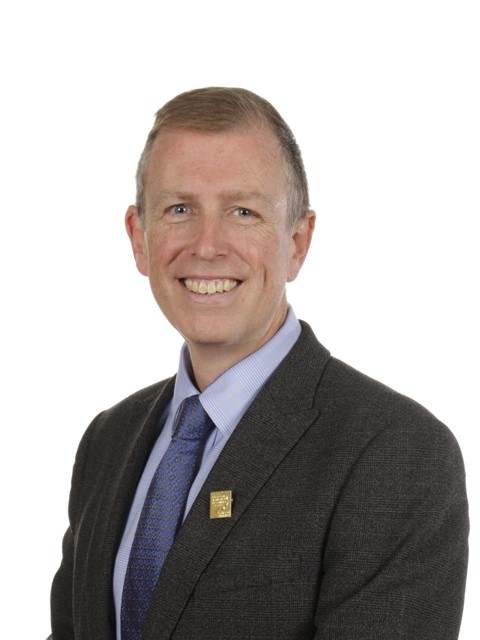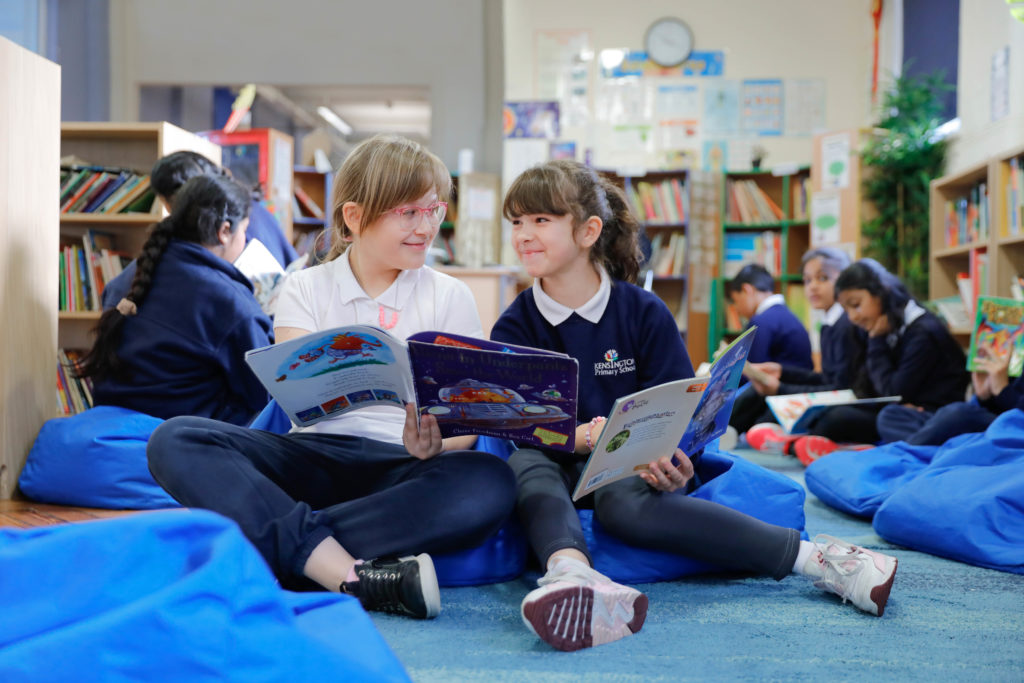State School Innovator Voice 4

Ben Levinson OBE – Headteacher at Kensington Primary School
Ben Levinson OBE has been the headteacher at Kensington Primary School in London for 8 years. He sets the strategic direction for the school, works hard to create the right culture for children, families and his team to flourish, and strives to build partnerships and relationships to enhance the school’s work and share their innovative practice.
How does your school innovate?
Where to begin!
Curriculum K was designed specifically to equip our children with what they need to thrive in the 21st century. Based on extensive research, it prioritises health and communication alongside the more traditional academic and cultural elements of the school curriculum. Children follow bespoke curriculum in Emotional Health, Physical Health and Communication, along with adapted curriculum in Technology, Science, The Arts, The World, Beliefs, and Current Events.
Our focus on Physical Health is threaded through the school day. Children wear tracksuits and trainers to school because research shows this helps them be more incidentally active throughout the day. They also have active learning breaks to help them focus (we all know how the mind can wander when we’re listening too long). Additionally, they have active Maths and English lessons using the www.teachactive.org resources as this can be hugely beneficial to engage children and support their learning. This is all because we know children cannot learn if they are not physically healthy AND this generation will face real challenges around living longer but potentially longer in ill health. We are setting the foundations for a long, healthy, happy life.

Our Emotional Health curriculum provides children with the knowledge and strategies they need to understand and effectively cope with their emotions. It is supplemented by our Relationships and Regulation approach. ‘Behaviour’, just like reading or writing, needs to be taught. We believe the best way to teach children is to help them understand where the behaviour comes from – their emotional responses – and to provide them with strategies to deal with this effectively. Our approach is centred on Emotion Coaching, which helps children identify and validate the emotion and then we support them to develop appropriate strategies for dealing with this in the school context.
We give our teachers the professional respect they deserve. They are highly trained and committed so we give them the freedom to do their jobs. They are not constantly monitored and we are realistic and very supportive about development. This autonomy extends to all areas. Teachers do not have fixed timetables as this does not match how learning works. They have the freedom to adapt and amend based on the needs of their class in any given moment. They also don’t mark children’s books – as the research shows it has minimal impact. They focus their time on really getting to the root of where children’s learning is currently, what the barriers are, and considering where it needs to go next and the best way to get there. (Having freedom to adapt when they are teaching what is a crucial part of this.)
We have a significant focus on a culture of wellbeing as we know that our children are going to thrive if our team thrives. We want teachers who have a balance and so turn up energised and enthused each day, not drained and exhausted. (This really shouldn’t be ‘innovative’ but if you look at the data, sadly, it is.) We were part of founding the Well Schools movement that now has over 1,000 schools signed-up and is committed to changing the system to put wellbeing at the heart of education.

We are changing the narrative about English as an Additional Language (EAL) children. These children are multilingual and highly skilled. We are currently working in partnership on a number of research projects looking at the best way to enable and empower these children.
Alongside Curriculum K we developed 7K. Based on the latest neuroscience, it is supporting our children and teachers to better understand how we learn and why we remember certain information. Through this, we are incrementally improving the way our children learn and supporting them to grasp the key building blocks as well as become more effective learners – a skill they will benefit from throughout their lives.
Why are you interested in progressive education?
Why would you not be?
The world is a rapidly changing place. When I left university 25 years ago, I didn’t have a mobile phone and I’d just got an email address. Change is only accelerating. In 10 years, 50% of the jobs that currently exist won’t. The idea that the same approach we’ve had for 150 years is the right one to realise the opportunities and challenges ahead is completely illogical. Then there are the challenges I previously mentioned. So the current system isn’t even delivering currently. Something needs to change.
In your opinion, what are the main challenges of our current state school system?
I think limited resource means we’re always focused on the cure and not how we prevent the issues children face. I think education is a huge beast. £100bn per year, second only to the NHS, with extensive history, structure, vested interest and inertia. Driving meaningful change in that context – at a system level – is incredibly challenging. I think that, with an unknown future, it is inevitably hard to make changes. I think that the political element doesn’t always sit well with the need for change because it is inevitably too short-sighted.
If you could make changes to the state education system, what would be your top priorities?
We need a fundamental overhaul of the purpose of education in the 21st century which would include what we teach, how we learn, and what the place of assessment and accountability is in all of that. But that’s easy to say when you don’t have to come up with a plan for implementing it. I also think we need to properly resource and reward as education (should) fundamentally impact on everyone’s lives for the better.
Do you have any advice for other schools in terms of implementing progressive practices within the state system?
Do it. You have more freedom than you think. As long as you are really carefully thinking about what you are doing and why you are doing it. As long as your intentions are good. As long as you work with your children, community and team…do it.
Follow Ben Levinson OBE
Twitter: @mrlev, @KensingtonSch
You can hear an inspiring conversation with Ben Levinson OBE on the Well Schools podcast at https://podcasts.apple.com/gb/podcast/well-schools-s3-e1-ben-levinson-kensington-primary/id1460804541?i=1000550285175

